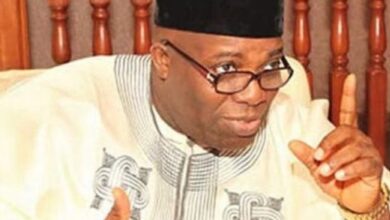Why I don’t believe in ‘One Nigeria’ – Bashir El-Rufai

President Bola Tinubu has ordered the Central Bank of Nigeria (CBN) and other regulators to tighten surveillance on cryptocurrency and digital payment transactions across the country.
Tinubu issued the directive on Tuesday, September 9, through the Minister of Finance and Coordinating Minister of the Economy, Wale Edun, at the 18th Annual Banking and Finance Conference of the Chartered Institute of Bankers of Nigeria (CIBN) in Abuja.
According to him, the pace at which Nigerians are embracing cryptocurrencies and other digital payment options outside the traditional banking sector has raised serious concerns for the government.
“There is a digital revolution. Many people now make payments without using the banking system. They’ve turned to stablecoins and digital currencies,” Edun said while delivering Tinubu’s message.
“To this end, I have directed capital market and banking authorities to take charge of this narrative and track it while it is still evolving.”
The president stressed that digital tools, artificial intelligence, and open banking are no longer futuristic concepts.
Instead, they are unavoidable realities that Nigeria must embrace to boost economic growth.
CBN Governor Olayemi Cardoso, also speaking at the conference, said Nigeria’s diaspora remittances were rising faster than expected.
He disclosed that remittances, which once stood at $250 million per month, had grown to $600 million.
He projected the figure could reach $1 billion monthly by 2026.
In his remarks, CIBN President Prof. Pius Olanrewaju said Nigeria’s banking sector had recorded major gains.
He revealed that since 2024, 16 listed banks had raised more than ₦2.5 trillion in fresh capital, strengthening balance sheets.
He added that net domestic credit to the private sector had surged to over ₦82 trillion this year, fueling businesses and job creation.
The directive to monitor crypto transactions comes months after the federal government filed a multi-billion-dollar lawsuit against cryptocurrency giant Binance.
Authorities accused the company of tax evasion, money laundering, and foreign exchange violations.
In February, the Federal Inland Revenue Service (FIRS) demanded $2.001 billion in unpaid taxes for 2022 and 2023.
Binance and its executives, Tigran Gambaryan and Nadeem Anjarwalla, also face charges of failing to register for tax compliance in Nigeria.
The lawsuit, one of three cases before the Federal High Court in Abuja, seeks $79.51 billion and ₦231 million in damages for alleged economic losses caused by Binance’s operations.
For now, Tinubu’s latest directive signals his administration’s growing resolve to regulate Nigeria’s fast-expanding digital economy.
Post Views: 36





